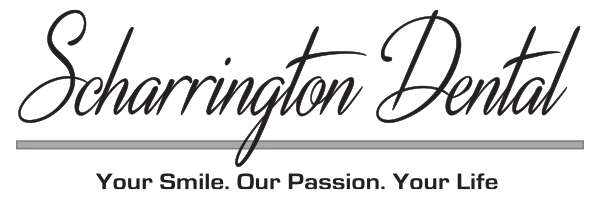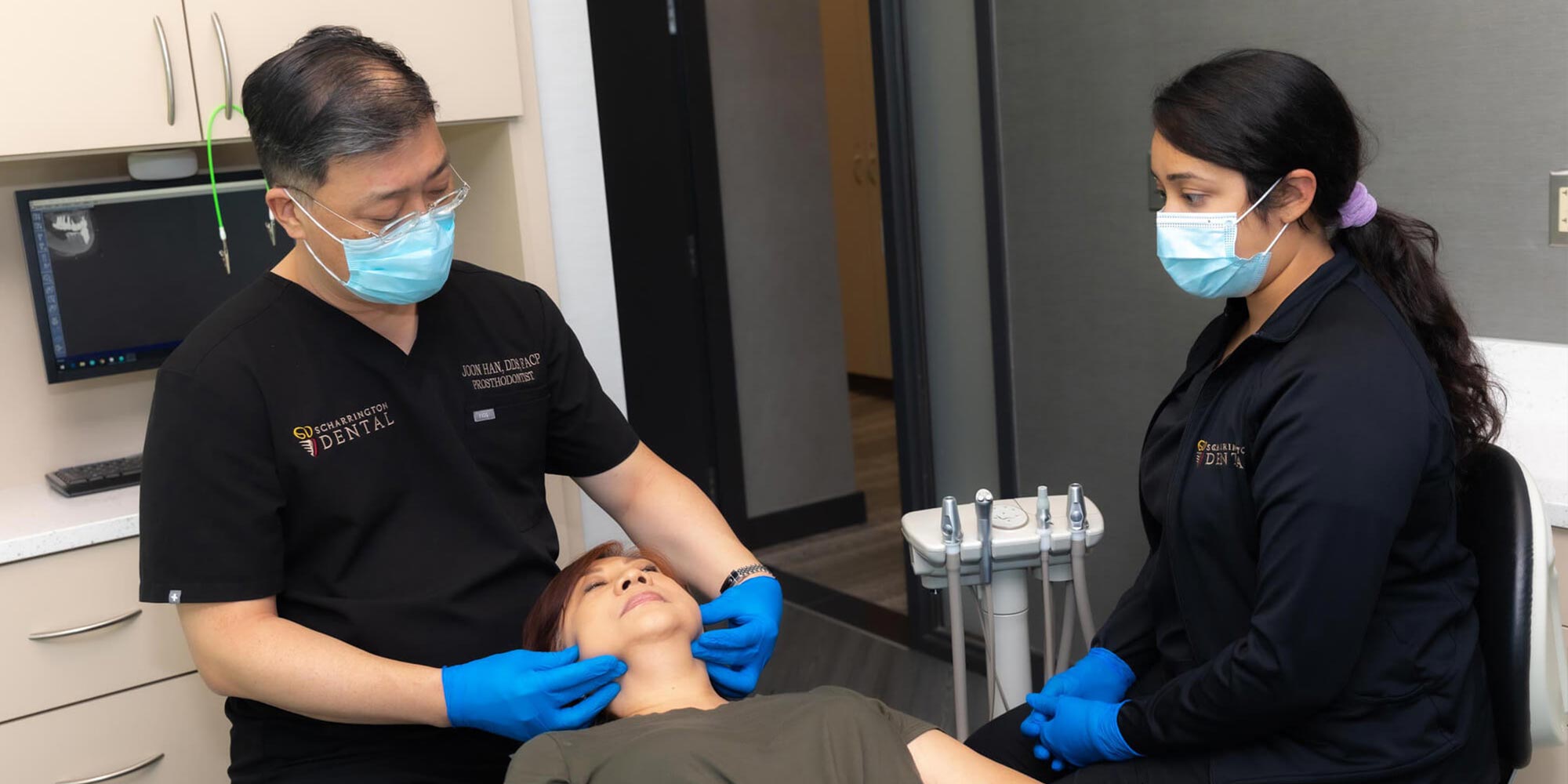Comprehensive Family Dentistry
General dentistry is possibly the most important area of dentistry. While you may need specialty dentistry services now or at some point, everybody needs general dental care for their entire lives. Guided by board-certified prosthodontist Dr. Joon Han, we can provide dental implants, dentures, crowns, cosmetic dentistry, and other restorative services at an expert level. That includes even the most complex cases. With two broadly trained general dentists on staff, we also provide the foundational dental services that can help prevent more serious conditions, such as checkups, cleanings, and fillings. Need general dentistry in Schaumburg, IL? You’ll find it and much more here!

Featured General Dentistry Services
Exams and Cleanings
The purpose of these appointments is to evaluate your general dental health, including historical treatments, areas of concern, and potential treatments to improve the quality of your smile. Professional teeth cleaning is essential to stop the progression of periodontal disease and gingivitis. The basis of good dental care starts with regular visits for an exam and cleaning. Patients of all ages should visit us every six months unless unique dental concerns require them more frequently.
Composite Fillings
We offer fillings to protect your health and the appearance of your teeth. When a tooth has been damaged by decay or trauma, we use dental fillings to add the strength needed to protect the structure of your teeth and create a natural smile. A filling is essential for avoiding complications and bigger treatments in the future. It supports the remaining portion of the tooth and minimizes additional decay and damage. With composite fillings or white fillings, your fillings will never show through your teeth!
Emergency Dentistry
In the case of a dental emergency, it’s important to visit us as soon as possible. Tooth pain, sports injuries, and other accidents are all treatable, but the sooner you get to us, the better! Our friendly team is standing by and ready to help. Emergency dental care is also available if you’re experiencing sudden, intense pain due to a broken filling, chipped tooth, broken tooth, infection, or any other concerns affecting your teeth and gums. We’ll treat the problem using appropriate services such as dental fillings, crowns, gum disease treatments, tooth extractions, and more.3
Occlusal Adjustment
Misaligned teeth can make it difficult for you to eat and speak comfortably as well as wear down your teeth. If you don’t have this misalignment corrected, your teeth may chip or break. We may be able to realign your teeth simply by trimming a small amount of enamel off the top of specific teeth to rebalance your bite.
Sleep Apnea Treatment
Sleep apnea isn’t simply snoring. With this condition you actually stop breathing repeatedly during the night. The poor quality of sleep that results can make you feel tired and unfocused during the day. It can even lead to heart issues. Wear a nightguard to bed—customized by our team—and your jaw will shift slightly forward during sleep, keeping your airway open and your respiration normal.
TMJ Treatment
When you’re grinding your teeth or clenching your jaw, it can lead to unnecessary tension, headaches, and damage to the teeth and gums. Frequently, this is caused by temporomandibular joint (TMJ) disorders. Temporomandibular joint disorders (TMD) can lead to complications if left untreated, such as broken or cracked teeth. We can alleviate them with a mouthguard.
Teeth Grinding (Bruxism)
If you grind your teeth at night, it can lead to preventable stress, headaches, and damage to your teeth and gums. We can reduce the severity of bruxism using a mouthguard to relax your jaw muscles and prevent grinding and tooth damage.
Crowns and Bridges
Dental crowns and dental bridges help you recapture a full, healthy, attractive smile after tooth damage or loss. Crowns are realistic-looking artificial tooth surfaces and bridges are crowns attached to one another in rows of three or more. Whichever you need, we customize them to fit seamlessly alongside your healthy teeth, ensuring they’re a similar shade, shape, and size.
Dentures
Dentures are a time-tested, economical option when you want to replace missing teeth. Today’s dentures fit more comfortably and have a more natural appearance than the dentures of yesterday. We can provide both full and partial dentures to eliminate those unsightly, problematic gaps in your smile and allow you to enjoy the benefits of a full set of teeth again.
SureSmile® Orthodontics
Having straighter teeth doesn’t necessarily mean having to get traditional metal braces. SureSmile® provides the same reliable results using customized clear aligners. That means discreet orthodontic treatment no one will even notice. They will notice a beautifully aligned smile once you complete treatment, however.1
Cosmetic Dentistry
If you need a tooth repaired or replaced, a prosthodontist is the best specialist to see for restorative dentistry up to and including smile makeover . That’s everything from minor repairs to full-mouth reconstruction. Prosthodontists have some of the most extensive esthetic training in dentistry, surpassing traditional cosmetic dentistry. Our combination of superior surgical skills, clinical expertise, and eye for aesthetics ensures optimal outcomes, and our advanced treatments will help create a smile that you’ll love.






